Dementia in the days of COVID-19: Letters from volunteers
Volunteers are at the heart of everything we do, and the meaningful relationships they build make our communities so special. While our in-person groups have been unable to meet for several months, volunteers have shared what they miss about their role and messages to the people they volunteer with.
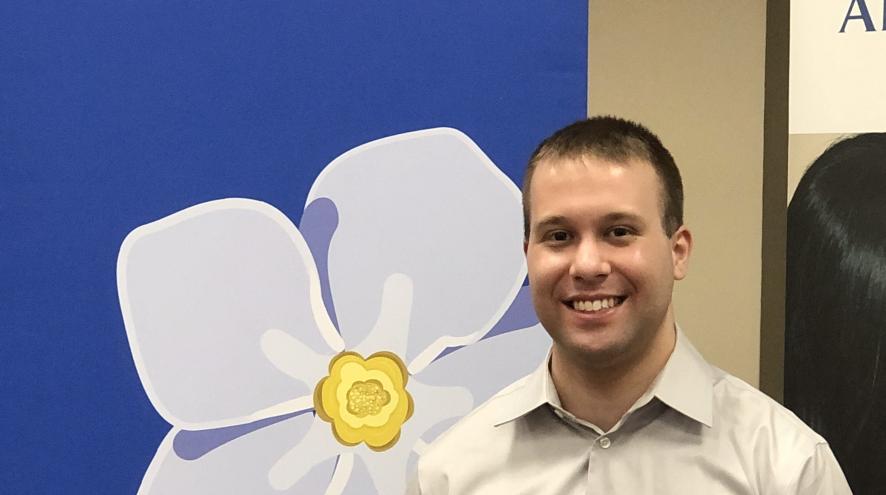
Dementia in the days of COVID-19: The volunteer experience
It has been a difficult year for volunteers who have missed giving their time to in-person support groups and Minds in Motion® online, activities that add purpose to their lives and help show people affected by dementia in their communities they’re not alone. Months into the first wave of the pandemic, we checked in with volunteers who wanted to share their words of encouragement to the people affected by dementia who they missed supporting in person.
A year later, some volunteers have transitioned to provide support of online Minds in Motion®, with many others, alongside Society staff members across the province, eagerly awaiting a time when we can provide in-person support once more. For many people, volunteering provides a sense of purpose and added meaning to life, and the loss of these groups has taken a heavy toll.
Pivoting to online
“When in-person volunteering stopped due to the pandemic, I felt greatly disconnected,” said Harleen Hans, a volunteer support group facilitator. “I missed the meaningful conversations with caregivers in support groups and felt something was missing when it came to my role as an active citizen.”
When remote programs began, Harleen started lending her volunteer support to online Minds in Motion®, where she was able to find what was missing.

“Being virtually there for people living with dementia and their caregivers has allowed me to feel like I am doing something meaningful again. Seeing participants imagine, think and share experiences initiates a sense of community, where dementia does not overrule.”
For volunteers like Ken Gillies, the reward of the volunteer experience “far outweighs your apprehension of stepping out of your comfort zone.” We heard from others that they still felt the benefits of providing direct support, even on a digital platform.
“I think what I liked most about the program was the opportunity to have a window into the lives of the participants, witnessing first-hand the relationships they share with each other,” said fellow program volunteer Annemarie Travers.
Waiting for the return
We are grateful to the online volunteers, as well as all our dedicated volunteers who have chosen to wait until in-person activities resume to join us once more.
“Like many of us forced to adapt and change due to these exceptional circumstances, I discovered I am more resilient than I thought I could be,” says Landon Short, a Minds in Motion® volunteer who chose to pursue post-secondary education during the break from his regular routine. “And I think that is an important message to keep in mind: because even though many of us might be struggling right now, we’ve made it this far already and things seem to finally be slowly turning around for the better. So, we all just have to keep our heads up high and remember how resilient we all are with the knowledge we can get through this together, even if we are all still apart for now.”
Vicki Taylor, a registered nurse and volunteer support group facilitator, found different ways to support her community and take care of her own well-being while waiting for the return of in-person groups. She now sews for charity, makes friendly phone calls to vulnerable seniors, volunteers at a vaccination clinic – and makes sure to get outside with her dog.
“This is a very challenging time for all of us but for those people who are facing a new diagnosis or dealing with progression of this illness, it must be incredibly isolating and stressful,” Vicki says. “I hope caregivers and people living with dementia will make use of the virtual community as best as they can. The First Link® Dementia Helpline is always answered by a kind and caring person. Hang in there until we can get back together in person.”
Cheryl MacDonald
Support group facilitator
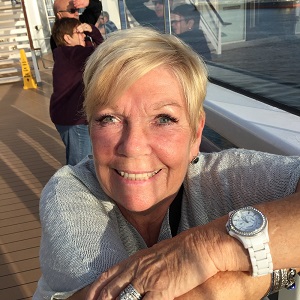
“What I miss most about volunteering with the Society are the people. There is a very special bond that is created, and although one cannot experience another’s journey, you live a piece of it with them through personal sharing and group discussions. I miss being a part of something so important. I have the privilege of being a facilitator for Caregiver Support Groups as well as Early Stage Support Groups, where my individual group members are willing to share and support each other.
If I was able to tell my group members anything, it would be: you are courageous, caring and show amazing strength. I would like to say thank you for letting me catch a glimpse into your journey.”
Gina McCulloch
Support group facilitator
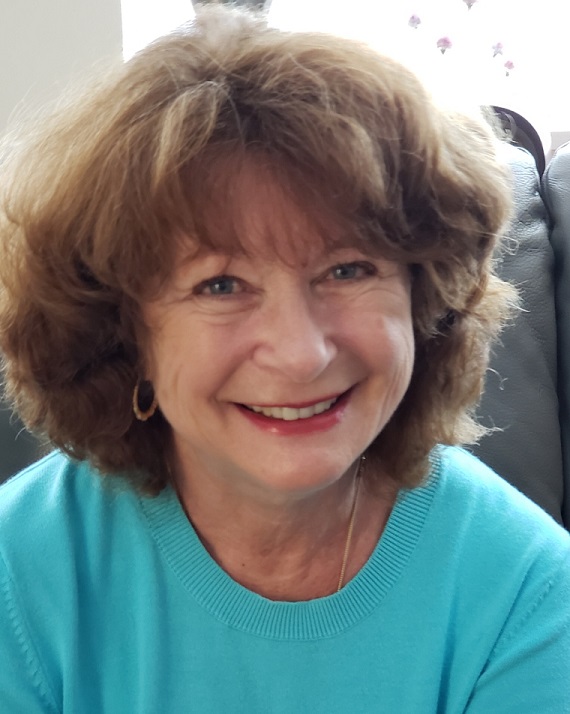
“While caring for my own mother for ten years, I was fortunate to receive guidance and support from the Alzheimer Society of B.C. After mum’s passing, I realized how critical the Society had been in assisting us both through the process. Until I joined a peer support group, I found the dementia journey was lonely and stressful. By sharing my journey with others, although the stress still remained, I was no longer lonely. Knowing the importance of group support led me to volunteer as a facilitator, hoping others would also benefit from the experience as I had.
My thoughts frequently turn to our group members as we are no longer able to lean on each other for support and understanding. I hope each of you realize that while we aren’t together in body, we are still together in spirit. I easily recall each member and the issue that was weighing on their mind at our last get-together. We volunteers remember you. We share your journey even though we can no longer sit beside each other.
I miss the time we share together, as I’m sure you do too. We all look forward to being able to gather again as a group. Until then, take care of each other and stay safe.”
Janis Wright
Support group facilitator
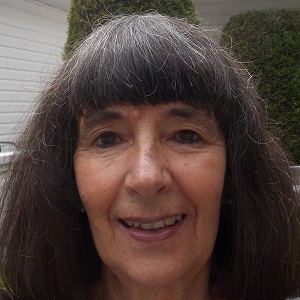
“My volunteering at the Alzheimer Society of B.C. involves facilitating the meetings for two support groups in the South Okanagan, and sometimes to help out with one or two others. In addition, my 97 year-old mother lives with the disease, which has given me first-hand experience as a caregiver.
During the pandemic, I not only miss visiting my mom, but I have found it even more difficult being unable to meet with my support group members each month. I miss the camaraderie, the laughter, as well as the tears. We all connect in a meaningful way because there is a special closeness that develops when people feel safe enough to share their fears.
I miss all of you! I want all group members to know that we volunteers are thinking of you during this challenging time, wishing we could be there for you, and hoping we will be able to do so very soon.”
Bridget Beggs
Dementia education volunteer
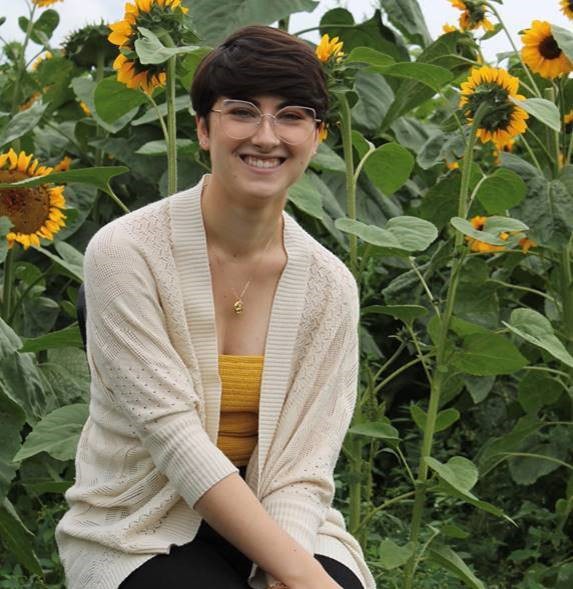
“The thing I’ve missed most about the Society are the individuals and families I’ve met, and the glimmers of light in their lives that they share. I’ve met so many people from various walks of life who are all going through different stages on their dementia journey. In the Society’s workshops, people share their experiences – be it their frustrations, changes in their lives or questions they may have about themselves or a person living with dementia. But what people also share are the small moments in their lives that leave bright spots for everyone.
As challenging as some days can be, the people I’ve met through the Alzheimer Society of B.C. have taught me so much about how valuable and surprisingly uplifting any journey can be. Something I’ve found myself thinking lately is that tough times do not last, but tough people do. The times we are going through are much like the journey of dementia; we don’t know what exactly is going to happen, but we can all learn ways to adapt our routines, connect in new ways and make it through these strange and challenging times together.
Stay safe, stay strong, and stay healthy. I look forward to when I get to reconnect with our community again soon.”
Landon Short
Minds in Motion® assistant
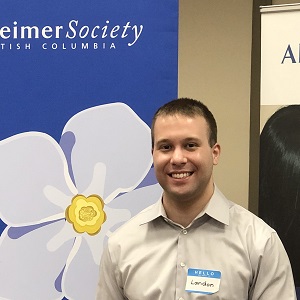
“This year has definitely taken a turn that nobody could have expected. For many of us, including myself, this has caused a great deal of stress on how we conduct our day, as this pandemic is seemingly at the forefront of everything we do. While it is easy to focus on all the negatives of this situation, I have had extra time to reflect on what matters to me and what I enjoy. Over the past few years I’ve been volunteering with the Alzheimer Society of B.C.’s Minds in Motion® program which has become a consistent part of my life. While I greatly enjoy volunteering each week, I think I began to take it for granted and expected the program would always be there for me like it is for so many others. Now with the program on pause, I have developed a newfound appreciation and love for not only the activities we have the opportunity to do, but more importantly, all the great people I’ve met and the relationships we’ve formed over the years that’s made us a family.
The greatest impact this pandemic has had on all of us is the lack of social interaction and it can make it feel alone, but you are not alone. Just as you are thinking of the friends you are missing, remember they are thinking of you, too. I know that I find myself thinking about everybody from the program, especially on Thursday mornings! It’s important to remember that this pandemic will pass and that we’ll all be together again. And when we are, we’ll be stronger than ever.”
Deanna Matthewson
Support group facilitator and community outreach support
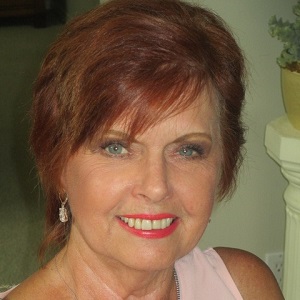
“I am a volunteer with the Alzheimer Society of B.C. in Kelowna, where I facilitate two caregiver support groups and assist with community outreach programs, including the annual Seniors Safety Fair. I look forward eagerly to the monthly meetings with my two groups. We always manage to have a few laughs together and come away feeling better than when we started. Each member of the group shares what has happened over the past month in their life and we all look forward to hearing their stories. We also share information about services and ways to solve any problems we have encountered while living with dementia.
Now during these closures, I miss seeing my groups and I wonder how they are doing with all the restrictions on our lives. I know how much I would like to get back to normal to take part in my usual activities and see my friends. I’m sure each and every one of my group members feels the same and is looking forward to the day that they can once again take part in all the things they did before the pandemic. I would like my friends to know I think of them often and sincerely hope they are getting the support they need, especially now as so many programs are closed. My closing message is: I miss you! Stay well until we meet again.”
Sandra Hentzen
Support group facilitator
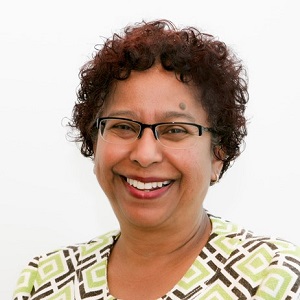
“As a former caregiver for my mother and having received so much from the Alzheimer Society of B.C., I became a volunteer Caregiver Support Facilitator. Every month, I look forward to meeting with family caregivers and listening to the shared experiences and learnings that they provide to each other. What I’ve missed in the last three months is the ability to be present with these brave and caring individuals as they go through this journey with positivity and growth, and now with an added obstacle to face. What I would like to say to the group of caregivers that I meet with monthly is to stay strong, stay safe, make sure you practice self-care more now than ever. I think of you often and look forward to connecting with you all.”
Explore the rest of the series
To explore the rest of our "Dementia in the days of COVID-19" stories, visit: alzbc.org/COVID-stories.
If you have questions or concerns about dementia or caring for someone living with dementia, call the First Link® Dementia Helpline. Monday to Friday from 9 a.m. until 8 p.m. in English (1-800-936-6033) and from 9 a.m. until 4 p.m. in Cantonese or Mandarin (1-833-674-5007) and Punjabi (1-833-674-5003).
